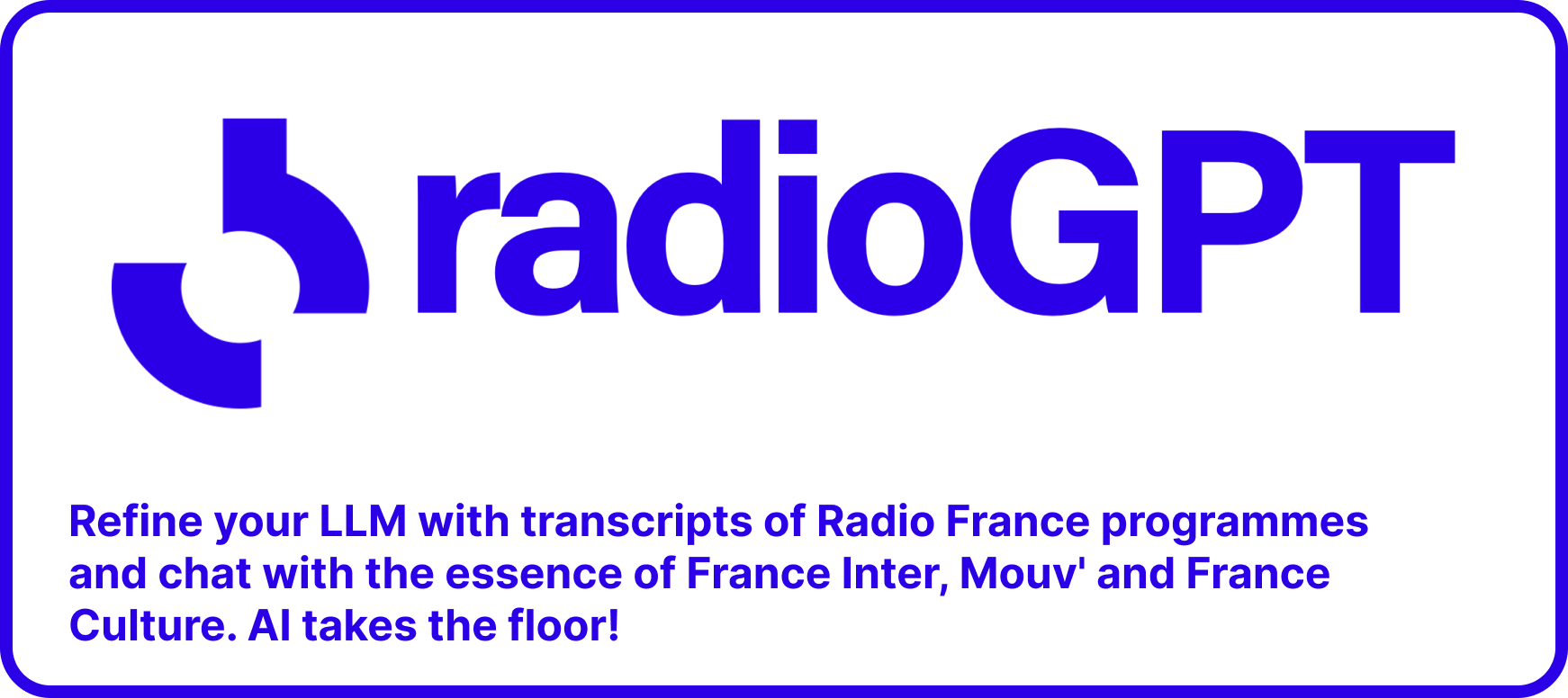The RadioGPT project is an educational project that demonstrates how to build and train language models from scratch. Through a series of progressive notebooks, you'll learn how to create increasingly sophisticated language models, from a basic character-level model to a more advanced chat-capable LLM.
The project consists of three main notebooks, each building upon the previous one:
-
RadioGPT_1_Generateur_de_Moliere.ipynb
-
RadioGPT_2_Larger_LLM_Chat.ipynb
-
RadioGPT_3_Finally_RadioGPT.ipynb
GPTlite: A lightweight GPT-style transformer- Modular attention mechanism
- Scalable architecture with configurable parameters
- Support for both training and generation
- Multiple dataset classes:
TinyShakespeare: Character-level datasetAlpacaDataset: Chat-oriented dataset
TinyShakespearestyle:ALpacastyle:
- Training and evaluation functions
- Model saving and loading
- Text generation utilities
- Performance monitoring
pip install torch datasets tqdm transformers
- GPU recommended on Google Colab (T4 or better)
- Clone the repository:
git clone https://github.com/yourusername/RadioGPT.git- Install dependencies:
pip install torch datasets tqdm transformers- Open the notebooks in order:
- Start with
RadioGPT_1_Generateur_de_Moliere.ipynb - Progress to
RadioGPT_2_Larger_LLM_Chat.ipynb - Finally, explore
RadioGPT_3_Finally_RadioGPT.ipynb
- Start with
Contributions are welcome! Please feel free to submit pull requests or open issues for improvements and bug fixes. This has been developed in less than 6 days, so there is a lot of room for improvement. 😉
- Developped by Chloé Lavrat for Radio France
- All rights reserved by Radio France and Chloé Lavrat
- Thanks to Marc Yefimchuk and Jade Moillic for the help in processing the data and improving the notebooks
- Thanks to the "attention is all you need" authors and the GPT-2 authors for the inspiration 🥰
- Thanks to the PyTorch team for the excellent deep learning framework
- Special thanks to contributors and the community


